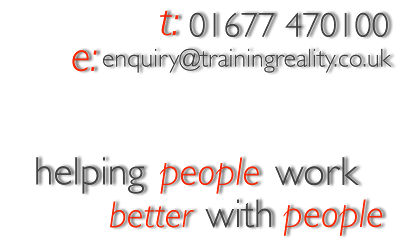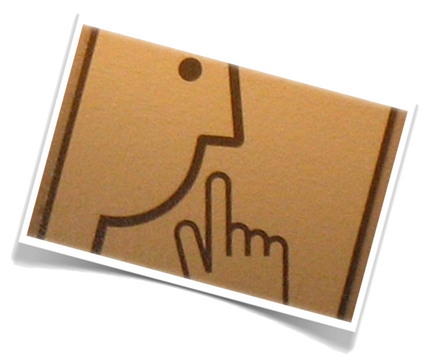Please press (at least!) one of these.
It costs you nothing, and (possibly) helps us spread the word!
Silence is golden - and powerful
Monday, 26 October 2009
A lot has been written over the last few days about Nick Griffin’s appearance on BBC’s Question Time last week. Rather then delve into the political issues here (which has been done in just about every paper and news website I’ve come across), I wanted to take a look at what the “debate” can tell us about communication, and, in particular, the art and skill of being silent.
A lot of communication training is about exploring how you transmit and receive information, and there is a lot of work that we can all do in these areas. Our abilities to communicate a message clearly so that what we intend to convey is what the recipient actually understands is crucial, as is our ability to fully and genuinely understand what they are communicating. However, one bit that is often missing is a real emphasis on the power of gaps in communication - gaps to think in, and gaps to allow others to think and communicate themselves.
This communication blog is going to look at these three distinct areas of silence.
Gaps to think
A question that I often ask groups on training courses is this. How many meetings have you ever been in where there were significant, regular periods of silence?
The answer, in every case I’ve experienced so far, is either “none”, or some expression similar to this. A couple of possible interpretations suggest themselves to me here:
1) Whilst someone is talking, other people are essentially planning their next interruption, or are poised, balanced on the edge of their seat, waiting for the next millisecond gap in the flow so that they can dive in. This worries me (as someone who is as guilty of is as anyone else!) because I wonder just how much real listening is going on. Is it really possible to listen with all your attention whilst also formulating your next sentence, and/or looking for an opening in which to interject?
2) The second interpretation is that the organisation in which this type of meeting takes place might be valuing quantity of communication over quality. Assuming that people in the meeting are behaving rationally (as they see it), perhaps sitting there are being thoughtful and quiet is not valued.
Gaps to allow thinking
Respect is crucial to great communication. Whether or not we agree with the point of view of the other party, they might have their opinion, and are as entitled to share it as anyone else. If we ask a question, are we really being fair if we demand an instant response? People need different amounts of internal thinking time to process information they’ve received and prepare an answer, but we should be respectful enough to allow them these gaps.
Silences seem an awful lot longer if you are, in effect, on the receiving end of them (in conversation - for presentations, this time-distortion tends to be reversed!). If you ask someone a question, be prepared to wait a little - they probably won’t notice a great big gap, because they are thinking.
clue: look out for eye movements...if their eyes are moving, the chances are, they’re thinking!
Gaps to allow communication
The final part of this dissection of silence is actually allowing people to communicate - and, in some cases, tell you more than they might otherwise have done.
This is the real power of silence. If you can keep quiet, you’ll often find that others can’t, and, in their desire to fill the gap, they’ll provide information that you otherwise might not have got.
Last week, I wrote about choosing to be open in your communication yourself (here)...this is about helping or encouraging others to be that open with you.
--
The reason that the edition of Question Time with the BNP leader present brought all this to mind is that there were (in my opinion) far too few silences for him to fill. I would have loved to hear more from him, because I firmly believe that, with more rope, he would have hung himself far more satisfactorily than the others did.
Please press (at least!) one of these.
It costs you nothing, and (possibly) helps us spread the word!





